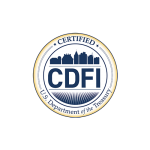Health Savings Accounts
If you have a high-deductible health plan and want to have greater control over your health care costs, a health savings account could be right for you. Health savings accounts (HSA) and high-deductible health plans were created to help individuals manage their health care costs. Before making a decision, you’ll need to evaluate your situation because, like any health care option, an HSA account has advantages and disadvantages.

What are health savings accounts?
Health savings accounts (HSA) are similar to personal savings accounts. They are a vehicle to help you save money for future medical expenses. However, the money set aside in these accounts can only be used to pay for health care expenses. You own and have complete control over the money in your HSA. Your employer or insurance company has no say in how the funds are used.
One benefit of an HSA is that the money you deposit into the account is not taxed. To be eligible to open an HSA, you must have a special type of health insurance called a high-deductible plan.
What is a high-deductible health plan and how does it work?
Simply, it’s a health insurance plan that has a high deductible. A deductible is the amount of money you must pay annually before coverage begins.
High-deductible health plans are becoming increasingly common. Many businesses are offering them as their only option. Be sure to carefully review the plan’s coverage details, including the out-of-pocket maximum or the limit on how much you would have to pay for medical expenses in a year.
High-deductible plans typically don’t start paying until after you’ve spent at least $1,400 (for an individual) or $2,800 (for a family) of your own money on health care expenses. Keep in mind deductibles vary by plan, however, the maximum deductible is $7,000 for an individual or $14,000 for a family.
You can use health savings accounts to pay deductible expenses, as well as copays and some other health care expenses that are determined by the individual HSA.
How do I know if an HSA is right for me?
Health savings accounts have advantages and disadvantages, so first evaluate your options. You’ll need to think about your budget and the health care you expect to need in the next year. If you’re generally healthy and you want to save for future health care expenses, an HSA is a good option. Also, if you’re near retirement, an HSA can make sense because the money can be used to offset the costs of medical care after retirement.
However, if you think you might need expensive medical care in the next year and would find it hard to meet a high deductible, an HSA and high-deductible health plan might not be your best option.

What are the advantages of a health savings account?
You don’t pay taxes on money going into your HSA. Some health savings accounts pay interest on the unused money in your account or invest the money in mutual funds or other financial products. The earnings from an HSA are also tax-free.
Health savings accounts allow you to control how your money is spent. You determine how much money to save for health care costs. In addition, your employer can contribute to your HSA, but you still own the account and the money stays with you even if you change jobs. Any unspent money at the end of the year will roll over to the next year and is yours indefinitely.
What are the disadvantages of a health savings account?
The pressure to fund your HSA might lead you to avoid seeking medical care when you need it. Medical emergencies and illnesses are unexpected and this makes it hard to accurately budget for health care expenses.
Reliable information about the cost and quality of medical care can be difficult to find. Many people find it difficult to save money to fund their health savings accounts. Also, if you take money out of your HSA for nonmedical expenses, you’ll have to pay taxes on it.
Who can set up a health savings account?
Your employer may offer an HSA option, or you can start an account on your own through a bank or other financial institution. To qualify, you must be under age 65 and have a high-deductible health insurance plan. If you have a spouse who uses your insurance as secondary coverage, he or she also must be enrolled in a high-deductible plan. This high-deductible health plan must be your only health insurance. However, you still can have dental, vision, disability, and long-term care insurance.
How much money can I deposit annually into a health savings account?
The Internal Revenue Service sets the contribution limits for health savings accounts. In recent years, the limits have been $3,600 for individuals and $7,200 for family coverage.
Once you’re enrolled in Medicare, you can’t continue making contributions to your HSA. However, in the years leading up to retirement — between ages 55 and 65 — you can make “catch-up” contributions of up to $1,000 over the limits to help pay for medical costs in retirement.

Can I withdraw money from a health savings account for nonmedical expenses?
Yes, you can make withdrawals. However, if you withdraw funds for nonmedical expenses before you turn 65, you have to pay income taxes on the money and are assessed an additional 20% penalty. If you take money out for nonmedical expenses after you turn 65, you don’t have to pay a penalty but you must pay taxes on the money.
Conclusion
For many individuals, medical expenses can be a significant portion of their budget. Paying medical bills are always draining on the monthly budget. Health saving accounts help you to build up a hedge against the unexpected and therefore a good option for many people.






